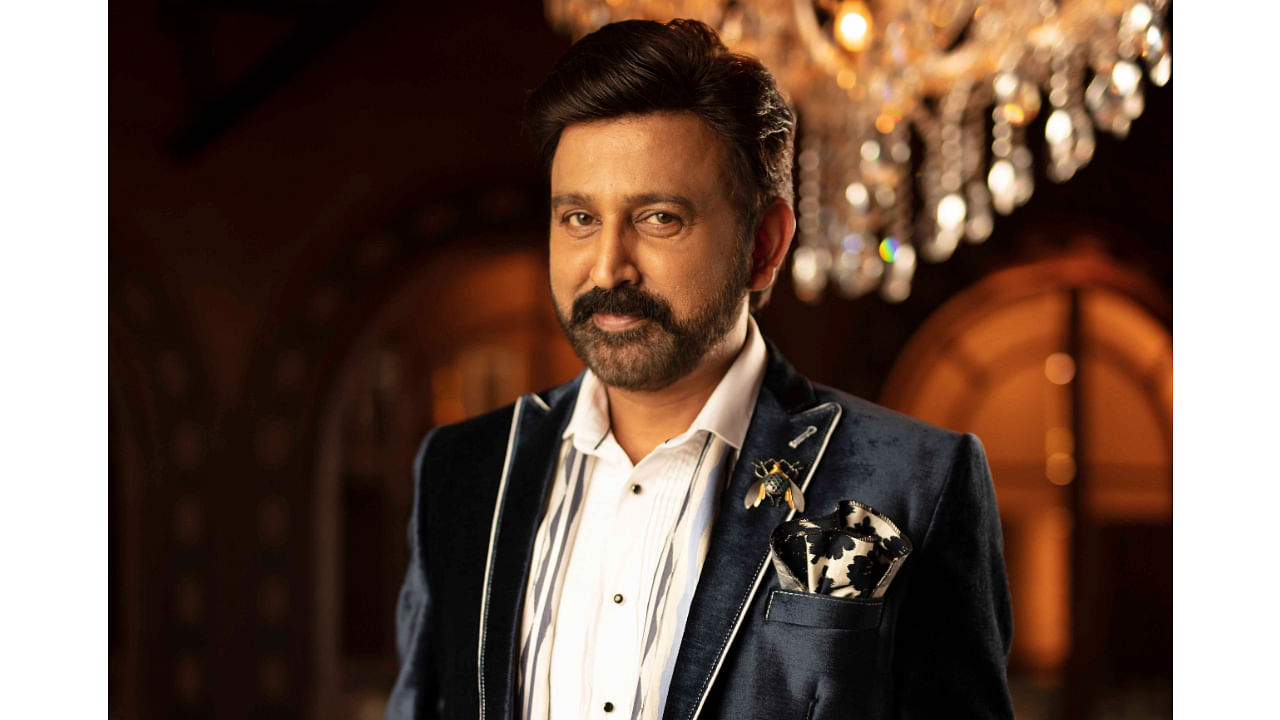
Actor, director, TV host and motivational speaker Ramesh Aravind wears many hats with ease. His 101st film as actor, ‘Shivaji Suratkal’, is among this week’s big releases.
Detective Shivaji, the central character in the film, is rude, unpredictable and moody, and Ramesh says he enjoyed discovering a side to him that he didn’t know existed.
In an exclusive chat with Showtime, Ramesh talks about his journey.
Tell us about Shivaji and why you enjoyed playing the role.
It is nothing like what I have done before. Shivaji is a bizarre, unpredictable genius on the verge of going mad. Akash, who has directed ‘Shivaji Surathkal,’ was my assistant in 'Accident'. I had read and studied about Sherlock. Shivaji doesn’t think twice before being rude. He has mood swings and insomnia. Every time I get a character different from me, it's great to do it.
Why do you like to call this a tribute to Sherlock Holmes?
There are numerous films on Sherlock and some really brilliant ones, including the latest series of BBC. This Sherlock is born out of our imagination. What if he were a Kannadiga, how would he think and move? I tweaked Shivaji to be very earthy and local. The sound effects are done so well that you have to come to the theatre to experience them. It is shot in a fictional town called Ratnagiri which you won't find on Google Maps. It’s a crazy place where crazy things are happening. The sound is from all 360 degrees.
The Kannada film industry had 243 releases last year. Yet we haven’t fared well commercially. What’s keeping us back?
It is never about quantity. It is quality that decides where you stand. The numbers don't matter at all. Anybody who thinks he or she can make a good film must be encouraged to do so. But the box office is a merciless filter. It is there that most films get knocked off.
Your thoughts about new-age directors and actors?
Many of them are engineers. When I came to the cinema, many asked me why I had left engineering. I see more engineers now than ever before. It’s nice when well-informed youngsters exposed to world cinema come into films. It doesn’t matter what they have studied. What matters is how well and how fresh they are when telling a story.
How do you handle flops?
Sometimes your taste and the taste of your audience match and the film clicks. Sometimes they don’t. That doesn’t mean you are wrong, you must realise that you have made a stupid film and move on.
What’s your stand on dubbing?
It is a business model. For instance, if I have money and I want to dub ‘Shivaji…’ into many languages, I must be allowed to do so because as a business model, it may work for me. We have no right to stop it as a business model. All we are saying is that these things should be done without hurting the local industry. Our industry must compete with quality.
How do you manage to steer clear of controversies?
I just do my work and return home. I have nothing on my agenda. I am least interested in what other people are up to or who’s having an affair with whom.
Did you miss having a godfather to guide you?
I had no background in cinema. In my younger days, my only contact with cinema was seeing film posters on the walls. Even to this day, my brothers and sisters don’t know about my work. I have been delivering and constantly working at my craft.
You never seem to age…
I don’t spend any time in front of the mirror. Be creative and stay away from negativity and that takes care of everything else.